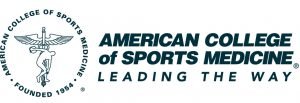Stella Volpe, PhD, FACSM, talks about the state of health and fitness in Philadelphia. Dr. Volpe says Philadelphia is not as active of a city as it could be. Philadelphia ranked 23d in the 2010 data report and has one of the highest obesity rates in the country.
Dr. Volpe shares some findings from a study on the top barriers to physical activity among Philadelphia residents. She also mentions the problems with “supermarket deserts.”
Dr. Volpe, a faculty member at the University of Pennsylvania, is a nutritionist and exercise physiologist whose work on obesity prevention, body composition, bone mineral density, and mineral metabolism and exercise represent a ten-year track record of consistent funding.
Dr. Volpe is a core member of the Biobehavioral Research Center, an associated faculty member of the Center for Health Disparities in the School of Nursing, an associate scholar in the Center for Clinical Epidemiology and Biostatistics, an associate faculty member in the Graduate Program in Public Health, a co-director in Excellence in Partnerships for Community Outreach, Research on Health Disparities, and Training (EXPORT), and a member of the Penn Diabetes Center, all in the School of Medicine. She is also a faculty associate in the Penn Institute for Urban Research, an interdisciplinary Center at Penn, and a senior fellow in the Leonard Davis Institute of Health Economics at Penn.
Dr. Volpe’s research revolves around the effects of the environment on obesity – both how the environment can be changed to prevent obesity, and how the environment has resulted in a more obese nation and world. Her interventions include changing portion sizes in cafeterias and making physical activity more a part of a person’s day to implement changes in behavior. She has also conducted a number of studies on mineral metabolism and how it affects exercise, thyroid hormone function, bone mineral density, and body weight. Dr. Volpe is a faculty member of the Physiology of the Body Compartment Fellowship Program in the Department of Neuroscience, Human Nutrition and Food at the Universita Degli Studi “Tor Vergata”, Roma, Italia.


